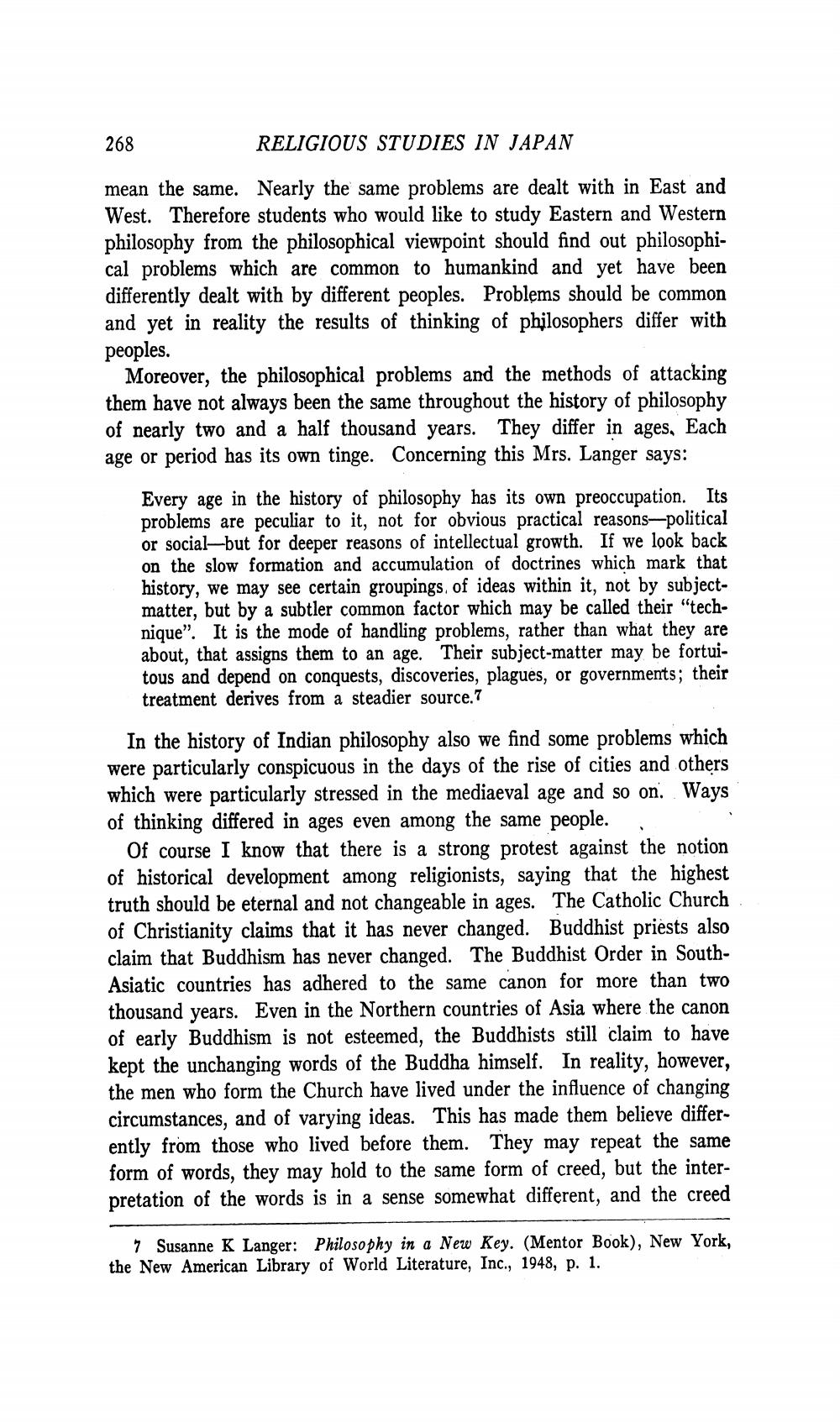Book Title: New Way Of Approach In Buddhist Studies Author(s): Hajime Nakamura Publisher: Hajime Nakamura View full book textPage 6
________________ 268 RELIGIOUS STUDIES IN JAPAN mean the same. Nearly the same problems are dealt with in East and West. Therefore students who would like to study Eastern and Western philosophy from the philosophical viewpoint should find out philosophical problems which are common to humankind and yet have been differently dealt with by different peoples. Problems should be common and yet in reality the results of thinking of philosophers differ with peoples. Moreover, the philosophical problems and the methods of attacking them have not always been the same throughout the history of philosophy of nearly two and a half thousand years. They differ in ages. Each age or period has its own tinge. Concerning this Mrs. Langer says: Every age in the history of philosophy has its own preoccupation. Its problems are peculiar to it, not for obvious practical reasons-political or social—but for deeper reasons of intellectual growth. If we look back on the slow formation and accumulation of doctrines which mark that history, we may see certain groupings, of ideas within it, not by subjectmatter, but by a subtler common factor which may be called their "technique". It is the mode of handling problems, rather than what they are about, that assigns them to an age. Their subject-matter may be fortuitous and depend on conquests, discoveries, plagues, or governments; their treatment derives from a steadier source.7 In the history of Indian philosophy also we find some problems which were particularly conspicuous in the days of the rise of cities and others which were particularly stressed in the mediaeval age and so on. Ways of thinking differed in ages even among the same people. Of course I know that there is a strong protest against the notion of historical development among religionists, saying that the highest truth should be eternal and not changeable in ages. The Catholic Church of Christianity claims that it has never changed. Buddhist priests also claim that Buddhism has never changed. The Buddhist Order in SouthAsiatic countries has adhered to the same canon for more than two thousand years. Even in the Northern countries of Asia where the canon of early Buddhism is not esteemed, the Buddhists still claim to have kept the unchanging words of the Buddha himself. In reality, however, the men who form the Church have lived under the influence of changing circumstances, and of varying ideas. This has made them believe differently from those who lived before them. They may repeat the same form of words, they may hold to the same form of creed, but the interpretation of the words is in a sense somewhat different, and the creed 7 Susanne K Langer: Philosophy in a New Key. (Mentor Book), New York, the New American Library of World Literature, Inc., 1948, p. 1.Page Navigation
1 ... 4 5 6 7 8 9 10 11 12 13 14 15 16 17 18 19 20 21
